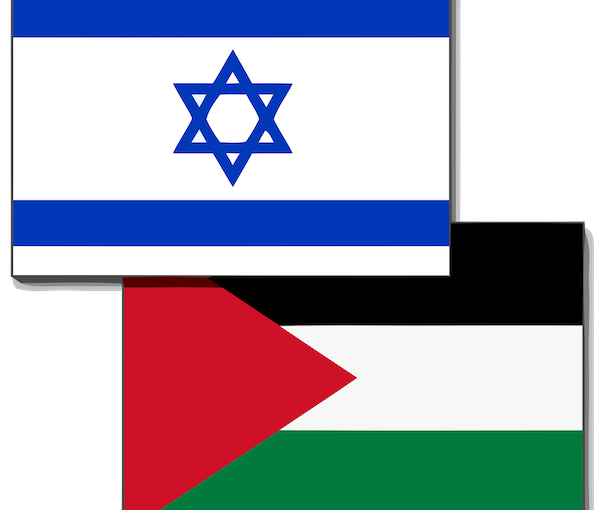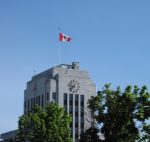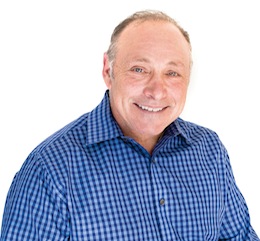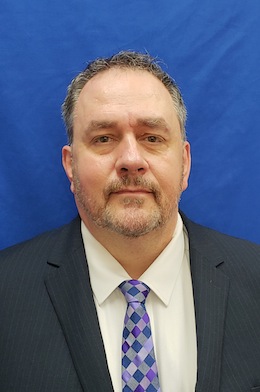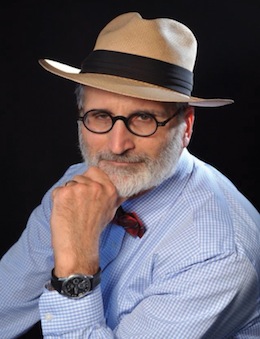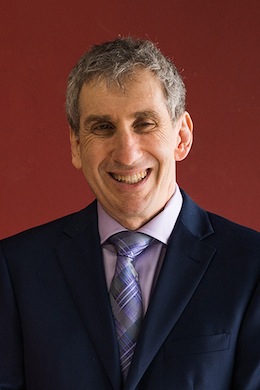As part of the Jewish Independent’s election coverage, we have traditionally profiled members of the community seeking elective office. And this year’s Oct. 15 municipal elections are no different.
* * *
Christine Boyle, Vancouver council candidate (incumbent)
Christine Boyle was elected to Vancouver city council in 2018 representing OneCity. She asked to be included in the Independent’s coverage as a member of a mixed family.
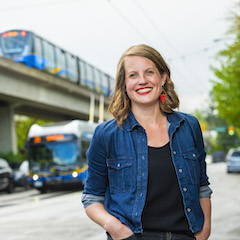
Boyle, who describes herself as a community organizer, climate justice leader and United Church minister, is married to author and public policy researcher Seth Klein. They are raising two children in East Vancouver.
Boyle said she has spent her first term on city council “working tirelessly to strengthen tenant protections, and make it faster and easier to build social, co-op, nonprofit and rental housing in every neighbourhood of Vancouver.” Her other priorities include public transportation, safer walking and cycling infrastructure, increased funding for curb ramps, public washrooms “and other tangible improvements to access and community health.”
“I am running for a second term on council, alongside a strong team of OneCity Vancouver candidates, because of my deep concern about the housing crisis, the climate emergency and the toxic drug crisis,” she told the Independent. “And I’m running because I know there’s so much more we can do.”
“My husband Seth was raised in a culturally Jewish home, the child of a secular Jewish father and a spiritually rooted Jewish mother,” she said. “When we were first dating, I remember him asking if he thought our religious differences would be a problem for our families, and my response was that we had much more in common than not.
“Throughout my upbringing, my theological training and my time working in religious leadership, I have constantly sought out opportunities to connect across faiths on shared issues of importance, from climate, to discrimination and anti-racism, to Indigenous rights, and more.
“More than a decade later, these values continue to be core to my family. The ketubah [marriage contract] that hangs on our bedroom wall reminds us daily of our shared commitment to tikkun olam, the struggle to rebuild and repair the world, to find our shared place in the centuries-old movements for equality and interdependence.
“We have worked hard to instil a sense of awe in our children and a connection to the faith and cultural traditions of their people,” said Boyle. “Our kids have attended programs at Or Shalom and the Peretz Centre. I became a regular challah baker. And we reach out to friends and leaders in our faith communities as we navigate how to raise good kids in the world these days.”
* * *
Ken Charko, Vancouver council candidate
Ken Charko is running as a Non-Partisan Association Vancouver candidate.
“I have always had a connection to the Jewish community,” Charko told the Independent.
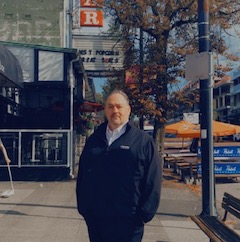
In his capacity as owner of the Dunbar Theatre and as a director on the board of the Motion Picture Theatre Association of British Columbia, he has been mentioned in the Independent over the years. Noting that he was profiled by former Menschenings columnist Alex Kliner in 2014, Charko said, “I have always been supporter of the arts and their importance in our community and the special connection the Jewish community has with the arts.”
Charko has run for Vancouver city councilor three times as an NPA candidate and, in 2018, as a candidate of the now-defunct Coalition Vancouver party. He said his top policy priorities concern “public safety and crime, including hate crimes; housing, including co-op housing on city land; arts venues and small business.”
While he initially thought of running in a federal election, he said, “Municipal politics is ‘touch politics,’ you feel the people and hear directly what each community needs and is looking for in an elected representative.”
He still has a lot of issues at the federal level that he wants to champion, he said, including “support for Israel, strong foreign policy, taxation fiscal policy and support for Ukraine,” but that, locally, he “can champion those policies more effectively as an elected council candidate.”
Charko acknowledged that “almost everyone running in this election wants the same thing I have mentioned above, including reduced tax increases. The choice for voters is who can get these things done. I am that person. I have always done that. As the only independent movie theatre owner on the Motion Picture Association board, I was able to get things done working with others.”
* * *
Jonathan Lerner, District of Lantzville council candidate
Jonathan Lerner is running for council in Lantzville, which is immediately north of Nanaimo.
“I grew up in the Jewish community in Vancouver, attending Talmud Torah, Temple Sholom and working for many Jewish organizations,” Lerner told the Independent. He has a degree in philosophy from the University of British Columbia and has worked with many nonprofit organizations.
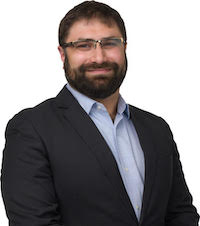
“These have included many Jewish organizations, such as Hillel BC, CIJA, Jewish Family Services of Vancouver and the Vancouver Holocaust Education Centre,” Lerner said.
“During my career, I have helped to uplift communities through the power of the charitable sector, including raising millions of dollars for employment services, food banks, immigration services, animal welfare, student education and scholarships, anti-racism initiatives, and more,” he said. “While I intend to continue my career in the not-for-profit sector, I hope to put my experience in finance, management and community development to use in helping Lantzville fulfil its slogan of being a ‘lovable, livable’ community.”
His top political priorities include bringing more services directly to the people of Lantzville, such as library book-mobiles, preserving Lantzville’s scenic landscape and natural beauty, expanding councilor office hours, public hearings and town halls, and ramping up emergency preparedness for earthquakes, floods, fires, landslides and other major disasters.
“My Jewish education and upbringing have definitely affected my community connections and outlook, while spurring me to get involved in politics,” said Lerner. “I believe strongly in the value of tikkun olam and the need to help those who are vulnerable become vulnerable no longer. This has been a major source of my motivation for community and charitable involvement. I sincerely hope that municipal politics will be the next step in the evolution of my work toward building a better world.”
* * *
Ellison Mallin, District of North Vancouver council candidate
Ellison Mallin was born and raised in North Vancouver. He has a degree in political science and a record of volunteerism, which led him to his current full-time position as constituency assistant for MLA Susie Chant. Ellison has served on North Vancouver’s Rental, Social and Affordable Housing Taskforce and the Community Services Advisory Committee, acting as the chair in 2022. He has coached in the North Shore Inline Hockey League and also has worked in the music industry.
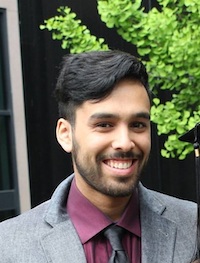
“Housing affordability is the number one issue for me in this election,” he said. “We are losing workers and our sense of community because people can no longer afford to live on the North Shore. This causes a chain reaction that leads to many of our other top problems, like traffic and public safety. Solving our housing problems needs to be done as a priority so that we may address other issues.
“I also have a dedicated platform on transportation solutions, better spending and planning, environmental leadership, improving civic engagement and improving the health of our community,” Mallin said.
“I am the great-great-grandson of Rabbi David Belasoff, who was the first full-time Orthodox rabbi in Vancouver,” Mallin said. “He led the B’nai Yehuda (now Schara Tzedeck). My grandparents, Lil and Lloyd Mallin, used to host amazing Passover, Chanukah and Rosh Hashanah dinners, but when they passed those did not continue. I did take my Birthright trip in 2016 to explore Israel and became more connected with the Jewish community in Vancouver as a result. Connecting to the community really did help me find my identity and gave me a lot of the confidence I needed to put myself out there in electoral politics.… I attend the occasional social events that I am available for, and I do go to some public events held by Har El in West Vancouver. For me, the biggest barrier to attending more events is the traffic and distance to them from North Vancouver and would love to see more Jewish community opportunities in North Van.”
* * *
Carla Frenkel, Vancouver Park Board candidate
Carla Frenkel has more than a decade of experience in architecture, working on affordable housing, urban design, and environmental responsibility. She is running for park board with Vision Vancouver.
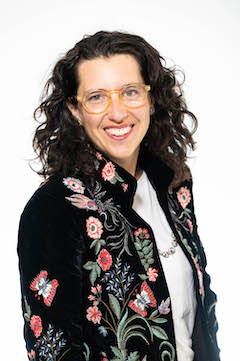
“Finding alignment with Canadian values, we decided to immigrate to Vancouver [from the United States] in 2014,” she said. “We found an amazing community in Strathcona, anchored around Maclean Park, our community centre and gardens. Since 2018, I have been president of the Strathcona Community Garden, where I coordinate hundreds of volunteers, leading stewardship of Vancouver’s largest community garden. There, I spearhead a wetland project, which manages storm water while improving biodiversity. A mother of three, I chair the Strathcona PAC’s school grounds committee,” she said.
“Today we face monumental challenges of aging infrastructure, climate change and reconciliation,” said Frenkel. “From this arises unique opportunities to create resilient parks and community centres that serve the diverse needs of residents.”
Frenkel’s identity and core values are intrinsically tied to being Jewish, she said.
“I grew up in a progressive Reform synagogue, which reinforced tikkun olam, interconnectedness, social and environmental justice and mitzvot,” she said. “In high school, I followed suit, joining NFTY [the Reform Jewish youth movement], actively leading, planning services and gatherings. In university, I worked at the Berkeley Hillel, where I met my husband. Today, we are part of the Or Shalom community, where we share these traditions and values with our children.”
* * *
John Irwin, Vancouver Park Board candidate (incumbent)
John Irwin was elected to the Vancouver Park Board in 2018 with the Coalition of Progressive Electors and is seeking reelection with Vision Vancouver. Like Boyle, he is part of a mixed family and his spouse is Jewish.
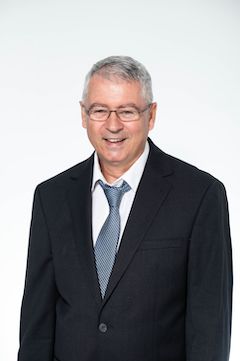
He holds a PhD specializing in sustainable urban development, works as a lecturer at Simon Fraser University and Alexander College and also has worked as a policy analyst for the Tenant’s Rights Action Coalition (now the Tenant Resource Advisory Centre) and the Canadian Centre for Policy Alternatives, B.C. office. He worked in fair trade retail from 1996 to 2006. He is a father of three school-aged kids and lives in the Fairview neighbourhood.
Irwin has served on boards including the Society Promoting Environmental Conservation, Friends of False Creek (now the False Creek Watershed Society) and the West End Residents Association. He was chair of the Henry Hudson Out-of-School Society and is an advocate for affordable childcare.
“I am running for reelection with Vision Vancouver as a park board commissioner, as I think that we have much more to achieve regarding the climate crisis, active transportation, ‘reconcili-action’ and accessible and affordable parks and recreation,” he said. “In my first term, I brought forward many successful motions: the Stanley Park Mobility Study focuses on reducing automobile traffic and promotes active transportation by increasing cycling, walking and public transit in the park while increasing accessibility for those with disabilities; a motion requesting the Port Authority give the park board the go-ahead to work with the local First Nations to plan and build an Indigenous cultural healing centre in CRAB Park; a recent motion asking staff to design fully accessible playgrounds for all children, which will help those with disabilities play with their peers in an active and inclusive way.
“I have also been a strong voice against discrimination of all types: antisemitism, Sinophobia and Islamophobia, etc.,” said Irwin.
“For many years, I have found the Vancouver Jewish community to be very welcoming,” he said. “Although I am not Jewish, many synagogues have welcomed me, my partner who is Jewish and my three children, who have all attended Hebrew school. Our children celebrated their b’nai mitzvahs at Beth Israel Synagogue, where we regularly attend as members. The practice of mitzvah has reinforced my activism to do my part in making our society in Vancouver socially just and sustainable. I am inspired by the practices of atonement and ecological consciousness, such as that found in Tu b’Shevat, the Jewish new year for trees.”
* * *
Kyla Epstein, Vancouver School Board candidate
Kyla Epstein’s family left South Africa before she was born.
“I was raised in Toronto on the shoulders of my parents going to anti-apartheid rallies, marching in Pride protests, and attending public, alternative schools that were child-centred, social-justice-focused and showed me that public education and learning can take many forms,” she said.
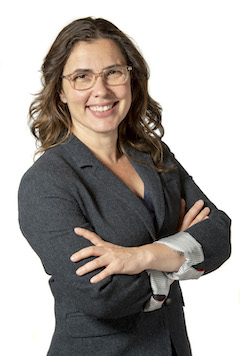
“Over the past two decades, my curiosity and desire to build relationships have led me to work in a variety of sectors, including business, philanthropy and nonprofit (including two years in Guatemala) and labour, before moving into my current role doing government and stakeholder relations at BCIT [B.C. Institute of Technology].”
Epstein has served on many boards and was a trustee and chair of the Vancouver Public Library board. She is now on the boards of the Vancouver Writers Festival, the Laurier Institution and the National Coalition for Dialogue and Deliberation. She has served on school parent advisory council executives for more than 10 years and is currently pursuing a master’s degree. She is running with OneCity.
“High-quality public education is one of the best ways that we, as a society, can care for future generations,” Epstein said. “Funding for the public school system should appropriately reflect the value of public education, not just for students and families currently in the system, but for communities and society more broadly.”
If elected, she said, she will advocate for funding to ensure that students with a range of diverse needs can thrive and every teacher and worker has the tools and resources they need; address climate change; stand up against any form of discrimination in schools; fully implement the United Nations Declaration on the Rights of Indigenous Peoples across the school district and develop reciprocal relationships with local First Nations for all planning decisions, especially those related to school board land; and improve Vancouver School Board governance by listening to people, being accountable and considering those who are most impacted.
“While not raised religiously, it is hard for me to untangle my identity from my being Jewish,” she said. “Many of my most special memories, or the moments that formed my sense of self, are grounded in Jewishness. Holidays such as Pesach have always been important to me because it is a regular reminder, through stories and songs, of the ongoing struggles for justice and liberation.
“I also feel a kinship with the emphasis on asking questions that is a part of my Jewishness,” she added. “The stories shared in my family about persecution faced by Jews have certainly contributed to how I see the world. Family stories of unwilling migration are regular reminders to me that everyone’s dignity and safety be upheld all around the world. My parents’ very difficult choice to leave South Africa and the activism I was raised with were rooted in the lessons of tikkun olam and I draw upon those lessons regularly.”
* * *
Fred Harding’s diverse DNA
During the mayoral candidates’ forum held at Temple Sholom Sept. 7, Non-Partisan Association candidate Fred Harding made a brief reference that he could become Vancouver’s first Jewish mayor. (He couldn’t. David Oppenheimer, Vancouver’s second mayor, was Jewish.)
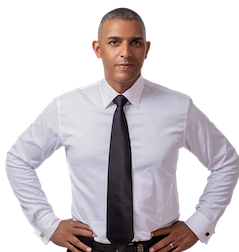
The Independent asked Harding about his roots after the meeting.
“My mother is from Germany – and my family was Jewish,” he said. “After she married my father, all my siblings were raised in Catholicism. My mother actually converted later on to Mormonism, so the Jewish faith was never practised in our home. The tragedy is that my family remained in Germany and so I never had a connection to the Jewish faith.”
At the age of 14, however, Harding traveled to Germany and met some of his great-aunts, who had been persecuted in the war and later received financial compensation.
He also has visited Congregation Har El.
“I had some very dear friends bring me to the temple in West Vancouver probably 12 years ago and that was my first experience,” he said. “I actually felt very, very welcome.”
He sees his family’s diversity as a benefit as he seeks to lead one of the world’s most multicultural cities.
“This is only a fraction of my DNA. I’m a German Jewish Catholic with a Mormon mother, a Christian father who came from Africa. I’m married to a Chinese lady, my granddaughter is Chinese, my eldest daughter is blonde and blue-eyed,” he said. “I feel the privilege of representing just about everything and I’m honuored for that background in my DNA.”
Voters across British Columbia choose local officials on Saturday, Oct. 15. Remaining advance voting days in Vancouver are on Oct. 8, 11 and 13 and vote-by-mail ballots can be requested until Oct. 11. For full details see vancouver.ca or your local municipal website.

